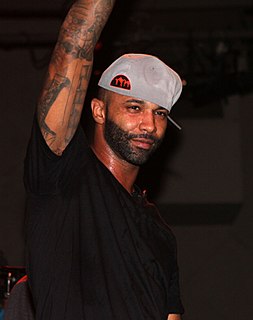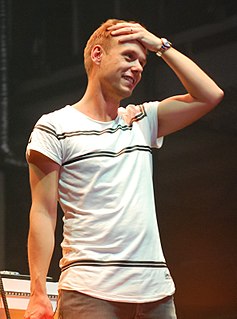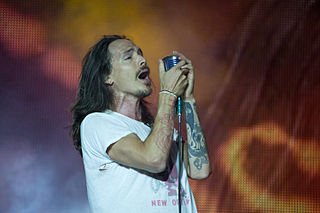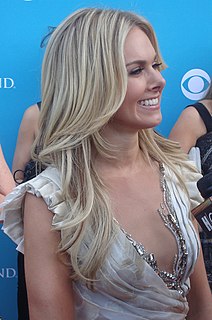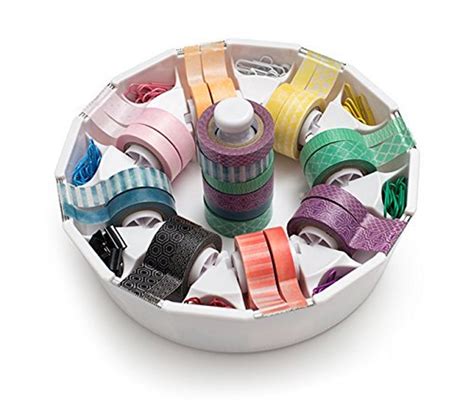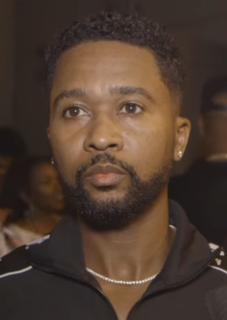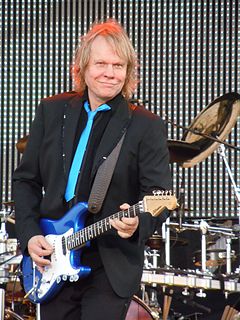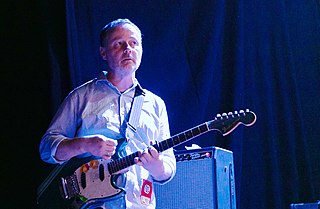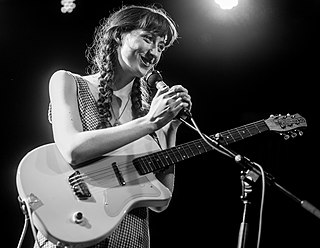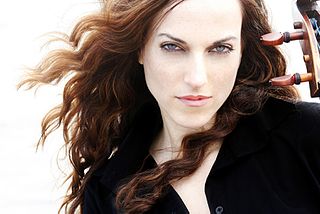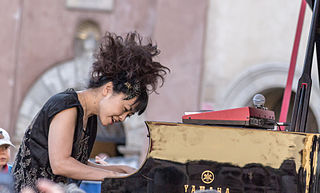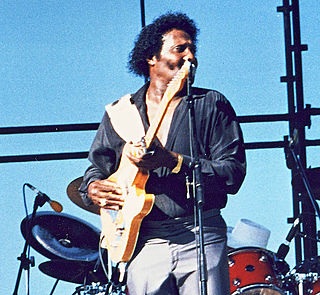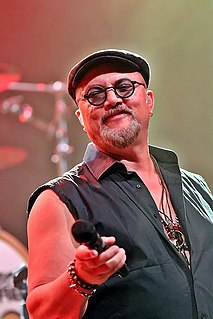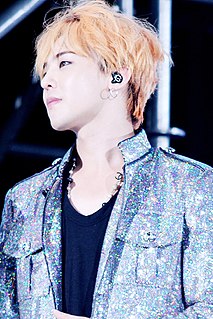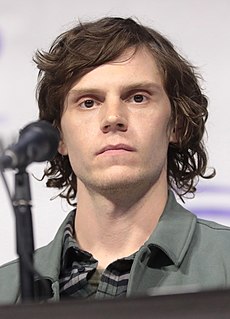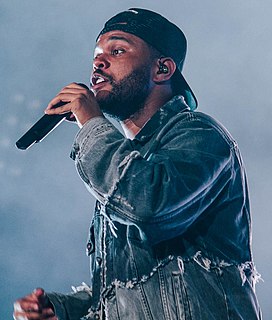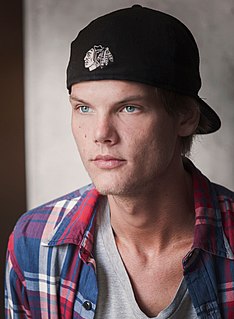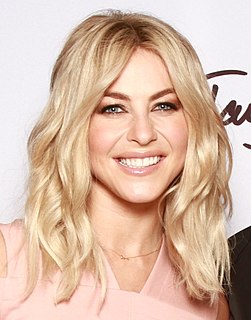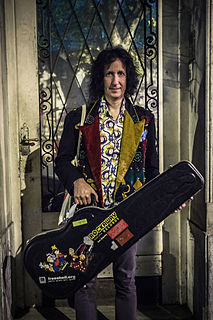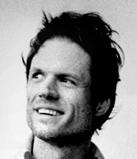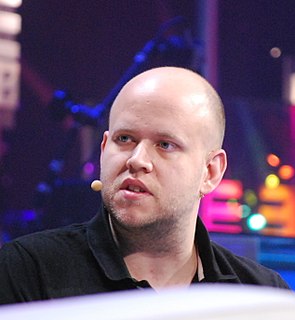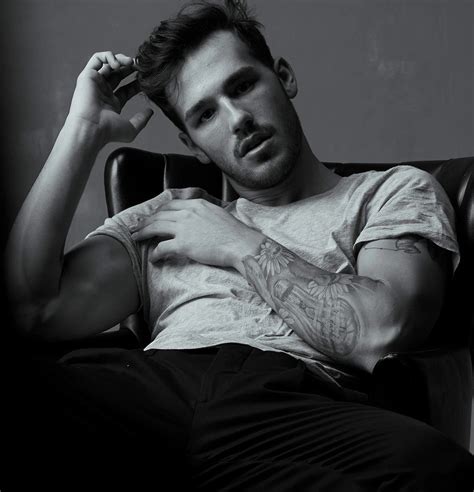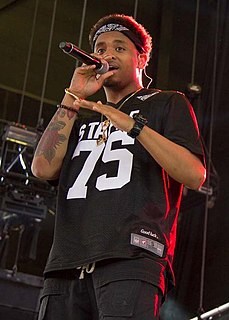Top 1200 Celtic Music Quotes & Sayings - Page 20
Explore popular Celtic Music quotes.
Last updated on October 10, 2024.
I read a lot - surveys of vernacular music. A lot of it is the Harry Smith Anthology of American Folk Music, which I've loved since I was in high school. They had it at the library and I always thought that was interesting, even when I was into punk and stuff. Just the history of storytelling and the amount of melancholy a lot of old music has.
I've always believed in good music over bad music. I believe in two sorts of musics. And the lines that separate us, I don't believe in that. That's for people who need to easily define what they're hearing. Me, I'm cool with everything and anything I'm hearing that's music. It comes under one definition for me.
As an artist, I always just want to grow as a songwriter. I listen to a lot of music. I listen to music all the time, whether it's hip-hop or soul or rock or whatever. I'm always listening to music and trying to learn from other songwriters and how they tap into certain emotions and communicate more clearly.
The translator has to be a good writer. The translator has to hear music too. And it might not be exactly your music because the translator needs to translate the music. And so, that is what you are hoping for: a translator who gets what you are doing but who also gets all the ways in which it won't work in the new language.
I'm a firm believer that embracing the imperfections of making music is so much of what makes something groove. Getting rid of these imperfections runs the risk of removing a lot of the magic that makes this music really special, and diminishes music's ability to connect with us as human beings. We are all imperfect, after all.
Music will still be a big part of our environment. The Bible talks about choirs of angels and how there is singing in Heaven. We're going to have the greatest choirs, the greatest bands and symphony orchestras, the greatest music that the world has ever known. The world has never even heard music yet compared to what we're going to have there! If humans can make the beautiful music they have learned to make with these hand-made instruments, think what God can do supernaturally!
Pop music, which I deeply admire and wish I could play better than I can, is based on expressing one mood, one feeling at a time. Classical music is by its very nature involved with different kinds of music, constantly transforming one another, which is more akin to the way our experience of life really is.
Prince turned experimental music into pop music. 'When Doves Cry,' the whole 'Purple Rain' soundtrack - he was inspired by the Cocteau Twins and new wave pop and brought it into R&B when he first started, and then it became this cool, next-level, kind of hard-to-digest music. Which is what I felt 'House of Balloons' was.
Music exists when rhythmic, melodic or harmonic order is deliberately created, and consciously listened to, and it is only language-using, self-conscious creatures ... who are capable of organizing sounds in this way, either when uttering them or when perceiving them. We can hear music in the song of the nightingale, but it is music that no nightingale has heard.
I'm definitely not a laptop/midi/abelton guy. But there is a lot of music I like. I really like Bach organ music. I really like Chopin piano music. I really like Wendy Carlo's electronic music. I really like Miles Davis and John Mclaughlin jazz style. So I'm not only an old-school rocker, but I have to admit that I'm going to be listening to The Doors, Rolling Stones, Iggy Pop, David Bowie and Bob Dylan many times a week.
There are two things that really move me: music and acting. And I'm not talking about my music or watching myself as an actor, but listening to other people's music and watching other actors. There are so many different songs that have moved me. It all depends upon the mood that I'm in at that moment.
I'm trying to fly the flag for the days of electronic music where people who are making it are also building the gear because that was what was happening in the very early days of electronic music. And that spirit is one of the things that really appeals to me about electronic music so I'm putting this forward as a way to keep that.
It [music] has an awakening function. Life is a rhythm. Art is an organization of rhythms. Music is a fundamental art that touches our will system. In Schopenhauer's The World as Will and Idea he speaks of music as the sound that awakens the will. The rhythm of the music awakens certain life rhythms, ways of living and experiencing life. So it's an awakener of life.
There are half a billion people that listen to music online and the vast majority are doing so illegally. But if we bring those people over to the legal side and Spotify, what is going to happen is we are going to double the music industry and that will lead to more artists creating great new music.
I mean, take 'Chariots Of Fire.' That opening scene, the long shot of the runners along the beach, and then you hear that music... I think that was one of the first times synthesizers were really used in movie music. I just flipped! I didn't even care what the story was going to be. Give me a nice marriage of sound and music.
The reason I do photographs is to help people understand my music, so it's very important that I am the same, emotionally, in the photographs as in the music. Most people's eyes are much better developed than their ears. If they see a certain emotion in the photograph, then they'll understand the music.
I'm just basically trying to make music that feels good. Right now in the music industry there's a real lack of intimacy. You don't really connect with the artist as much anymore, and you don't really understand where they are. I'm basically doing music that illustrates who I am and where I am in my life.




